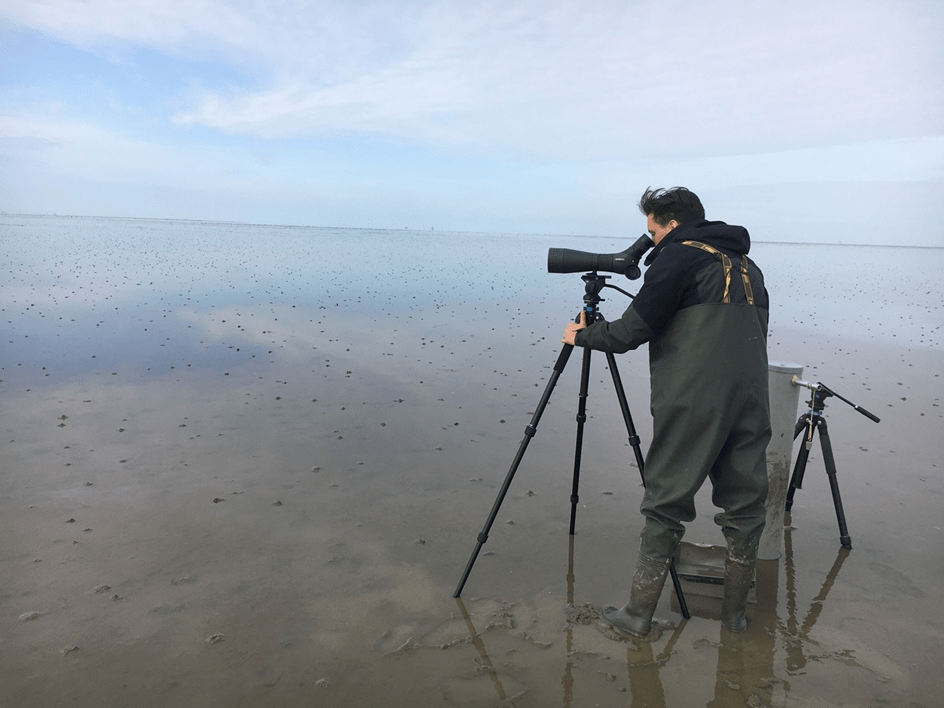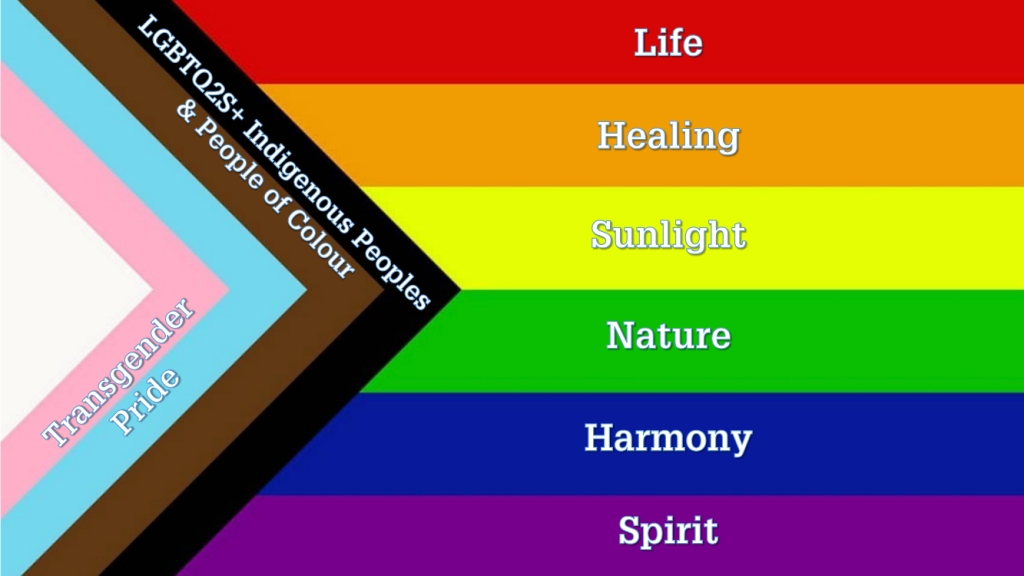
The Rainbow Research series returns to the British Ecological Society to celebrate Pride month 2022! These special posts promote visibility and share stories from STEM researchers who belong to the LGBTQIA2S+ community. Each post is connected to one of the themes represented by the colours in the Progress Pride flag (Daniel Quasar 2018). In this post, Mees van Laanen shares his story of studying birds in the Netherlands, and Transgender Pride.
About me
Hi my name is Mees. I am currently in the first year of my Biology Masters in the Netherlands. I’m really interested in ecosystem restoration and the protection of species as well as in the link between science and society. In my free time I like to draw and be creative. Even though I like drawing all animals, I often end up drawing birds, which I share on my Instagram account @meesdrawsanimals. I also like to go into nature looking for birds and photographing them. As you can probably tell by now, I’m a huge bird fan.
My love for nature started at an early age. One of the things that drew me to nature in the first place was that nature just seems to be everywhere and it’s never the same in two places or at two times. For instance, as I’m writing this, a ladybird is crawling across my hand, on the plant next to me an aphid just deposited its eggs, and a jackdaw is walking on the grass around me looking for food. Nature really is everywhere if we just look for it. As I got older, there was also another reason for my fascination with nature: the huge diversity of it. As humans we like to put everyone and everything in boxes. However, nature shows us that things are not as black and white as we sometimes make it out to be. It’s this refusal to be put in boxes what makes me feel so at home in nature. For me, seeing my transness in such a biological perspective really helped me to accept myself and be proud of who I am.
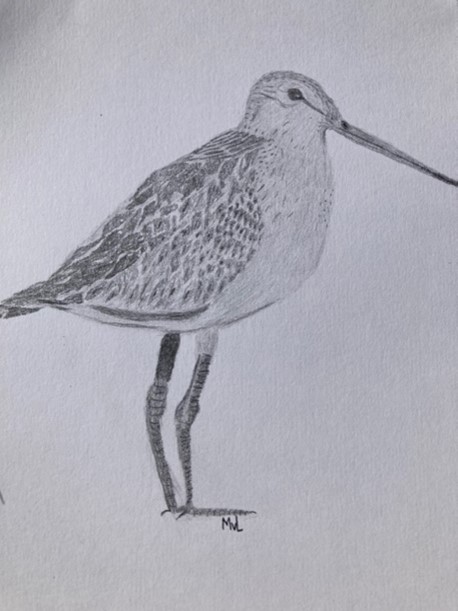
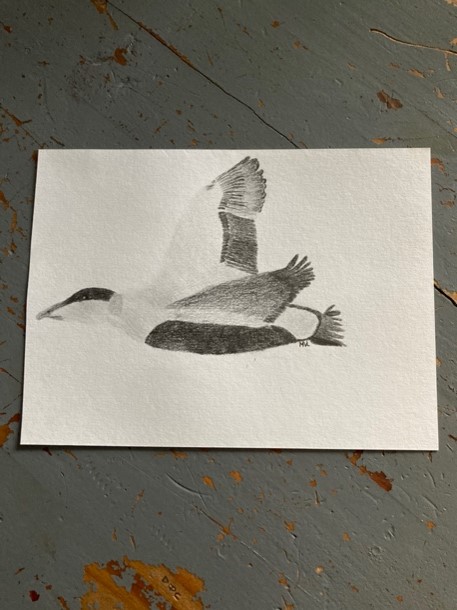
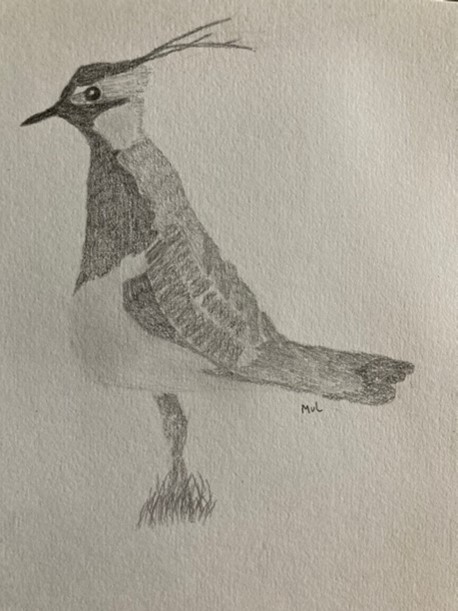
Some of my work. A Bar-tailed Godwit, Eider, and Northern Lapwing. Credit: Mees van Laanen
About my research
At the moment I’m doing my master’s internship on the migration of Bar-tailed Godwits. The subspecies I’m studying migrate from their overwintering grounds in West-Africa to their breeding grounds in Siberia. A spectacular journey of thousands of kilometres. During this migration, they make a fuelling stop in the Wadden Sea. Here they need to restore their energy reserves before continuing their journey north. Due to climate change, snow melts earlier in the Arctic which means the short food peak is also earlier in the season. Since these birds need to time their reproduction with this food peak, they have to arrive at their breeding grounds earlier and earlier. This could lead to these birds becoming increasingly time stressed which can lead to a lower survival, especially in years with low resource availability. Their fuelling stop in the Wadden Sea is thus really important, and I’m currently looking at prey selection of these birds in this area.
Identity
Early in my transition I often saw my identity as a limitation instead of an opportunity. I was really focussed on all the things I can’t do and all the countries I can’t travel to. Take studying bird migration as an example. These birds are free to travel the whole wide world and studying them made me realize I’m not as free as them. As a trans person, I can’t follow them to their overwintering grounds for example, since people like me still face prosecution there. Even though this is true, there is so much that I am able to do, and I always try to focus on this. Moreover, because of this whole journey I know myself and what I want in life better than most people my age, which I see as a definitive win. This is also my advice to other people like me: try to focus on the opportunities your identity gives you instead of only seeing the limitations. However, I don’t mean that we should just accept things for how they are, there is still a lot to fight for. If I had the power to change the world, I would make it so we can all be as free as these birds, independent of who we are or who we love.

